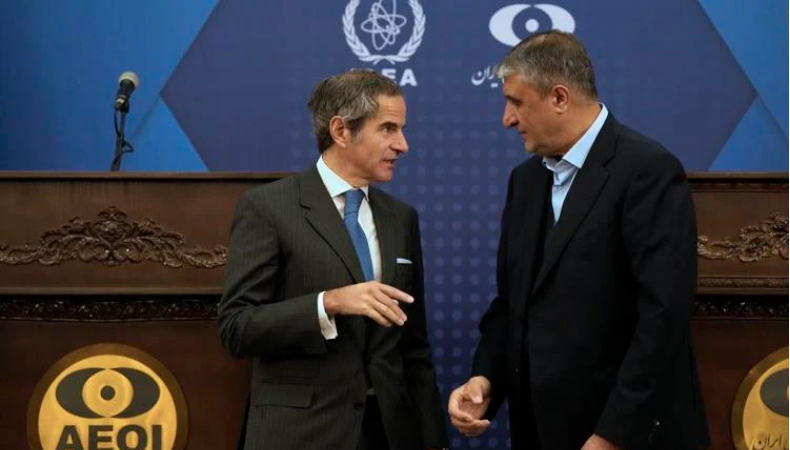
The world is at a critical juncture in addressing Iran’s nuclear ambitions, and recent statements from the International Atomic Energy Agency (IAEA) chief have made one thing clear: time is running out. As the clock ticks down, the global community faces a daunting challenge—can diplomacy still resolve the crisis, or is the window for peaceful engagement closing forever?
The Growing Threat of Iran's Nuclear Program
Iran’s nuclear program has long been a point of contention between Tehran and the international community. While Iran maintains that its nuclear activities are for peaceful purposes, concerns over the potential for nuclear weapon development have led to heightened tensions, particularly with countries like Israel, Saudi Arabia, and the United States.
The IAEA has raised alarms that Iran is increasingly violating its commitments under the Joint Comprehensive Plan of Action (JCPOA), also known as the Iran nuclear deal. This agreement, established in 2015, was a diplomatic breakthrough aimed at curbing Iran’s nuclear capabilities in exchange for the lifting of economic sanctions. However, following the U.S. withdrawal from the deal in 2018 under President Trump, Iran has gradually resumed its nuclear activities, including enriching uranium to levels closer to weapons-grade material.
The Urgency of Diplomatic Efforts
The IAEA’s chief warning about the shrinking window for resolving the crisis is a call to action for the international community. While there have been various attempts to negotiate with Iran, the breakdown of talks and escalating tensions suggest that diplomacy is at a crossroads. Without urgent and meaningful engagement, the risk of military conflict or the further spread of nuclear weapons in the Middle East could escalate.
Diplomacy, however, remains the best option to avoid catastrophic outcomes. A military intervention could spark a regional war, involving not only Iran but also its allies, and could potentially draw in global powers, leading to a much larger and more destructive conflict. The idea of a nuclear-armed Iran is a nightmare scenario for many countries, and preventing that outcome is a responsibility that must be shared by all stakeholders.
The Role of International Cooperation
The global response to the Iran nuclear crisis needs to be unified. The United States, European nations, Russia, China, and regional players like Saudi Arabia and Israel must set aside their differences and come together to craft a solution that balances Iran’s right to peaceful nuclear technology with the international community’s desire for non-proliferation and regional stability.
Negotiations must be inclusive and address not just Iran’s nuclear program but also broader regional security concerns, including Iran’s involvement in proxy conflicts, missile development, and its relationship with neighboring countries. However, these talks cannot proceed without mutual trust and a willingness to make compromises on all sides.
What’s at Stake?
If diplomacy fails, the consequences could be severe. A nuclear arms race in the Middle East could be ignited, with other countries like Saudi Arabia, Turkey, and Egypt seeking to develop their own nuclear capabilities in response to Iran. The global non-proliferation regime, which has been a cornerstone of international security since the Cold War, could unravel, leading to an uncertain and more dangerous future.
Beyond the geopolitical consequences, the human toll of a failed diplomatic effort could be catastrophic. Military conflict could lead to loss of life, displacement of civilians, and a destabilized region that would take years, if not decades, to recover from.
A Path Forward: The Case for Diplomacy
Despite the current impasse, diplomacy is still the most viable path forward. The IAEA’s warnings should serve as a wake-up call to leaders worldwide—there is still time to avoid disaster, but that time is running out. The global community must act now, not tomorrow, to prevent this crisis from spiraling further out of control.
The future of global security, particularly in the Middle East, hinges on the ability of world powers to come together, prioritize dialogue, and seek peaceful resolutions. Only through genuine cooperation and a commitment to resolving Iran’s nuclear crisis through diplomatic means can we hope to secure a stable, peaceful, and nuclear-free future for the region.
The situation with Iran’s nuclear program is one of the most pressing challenges in international diplomacy today. While the threat is real, it is not insurmountable. The time for diplomacy is now—failure to act could lead to irreversible consequences for regional and global security. It’s time for all stakeholders to step up and commit to a peaceful resolution before it's too late.
